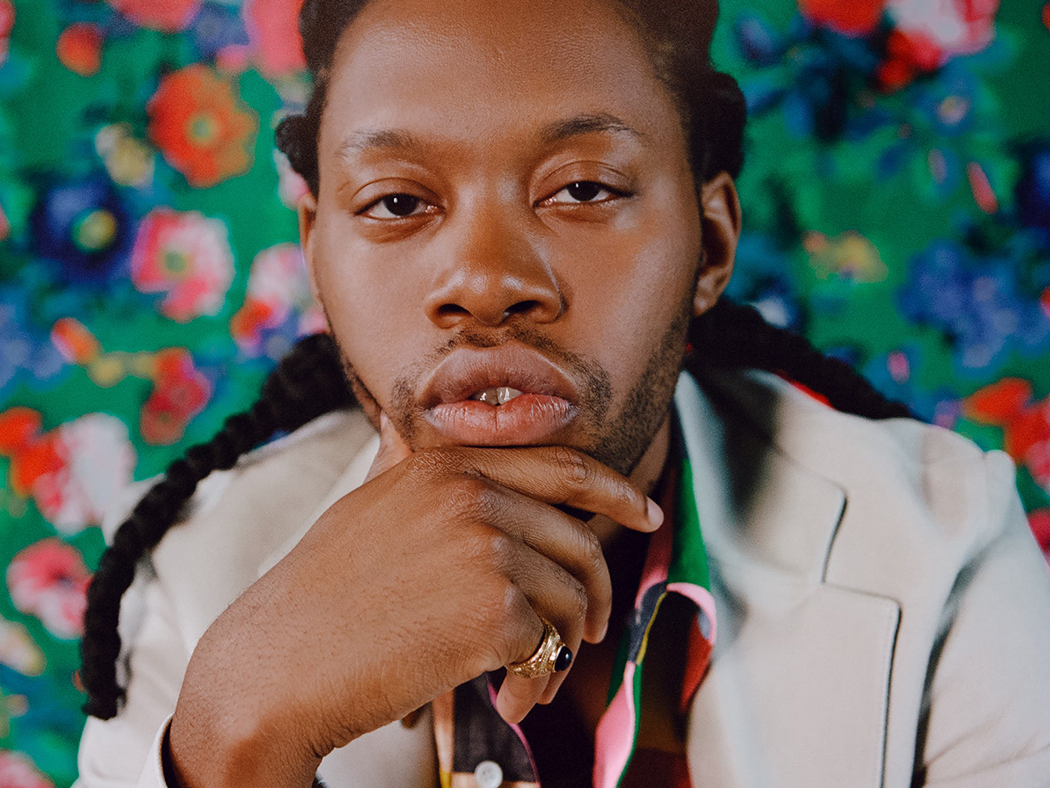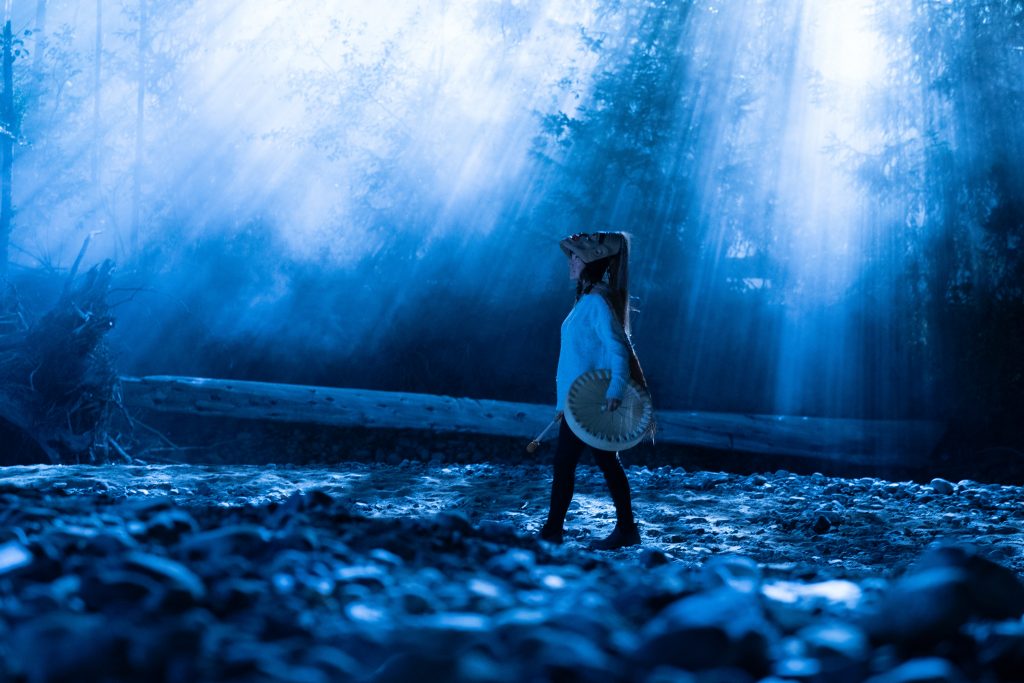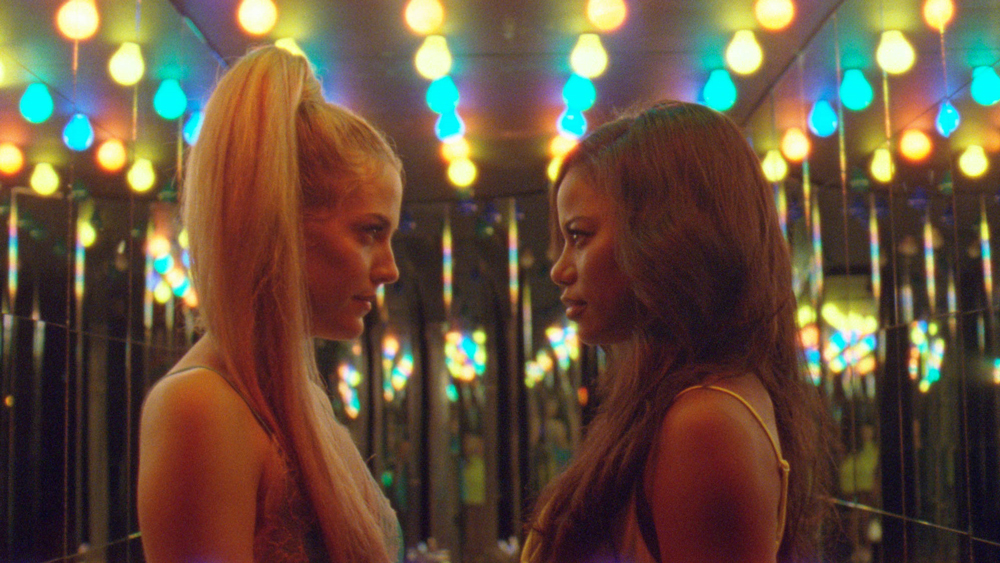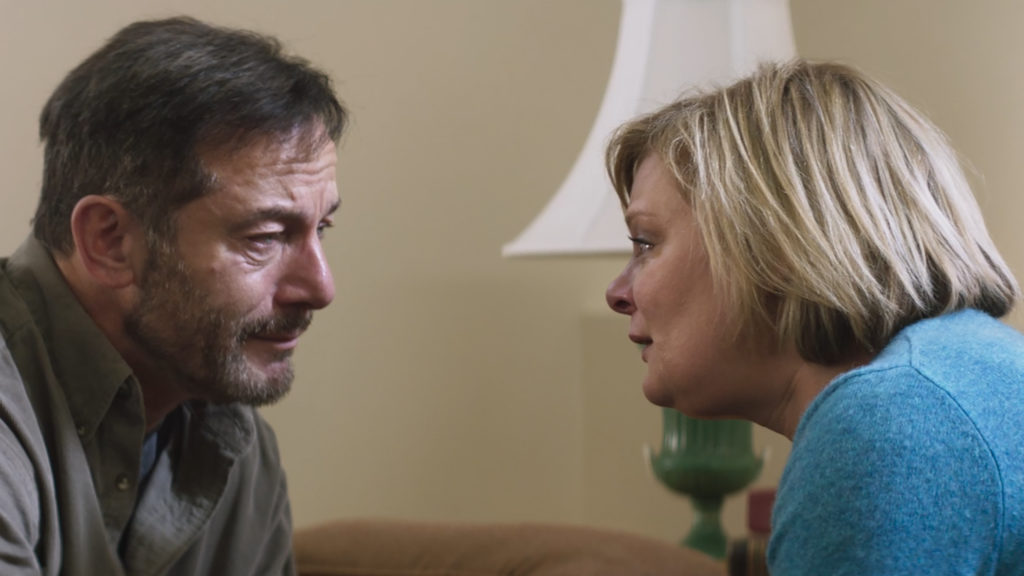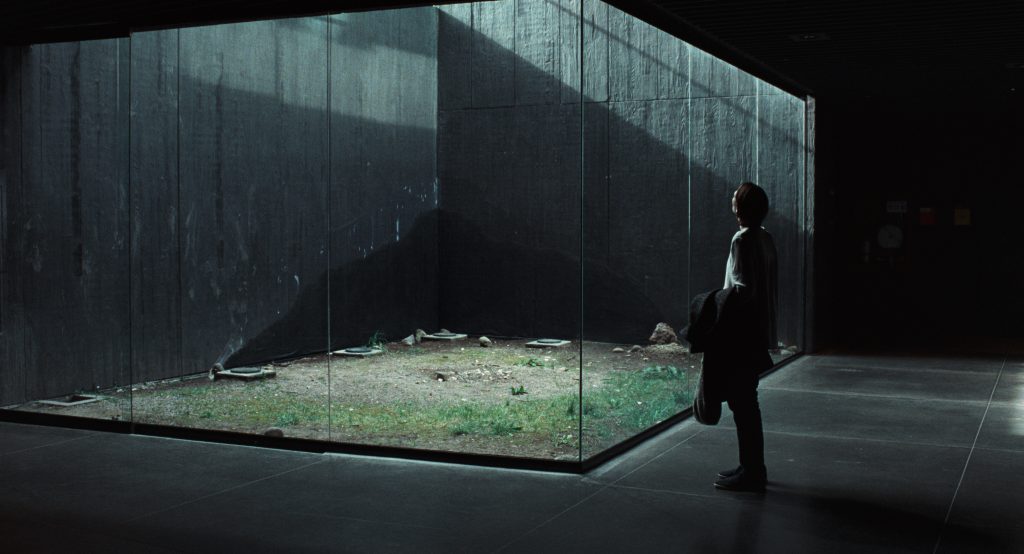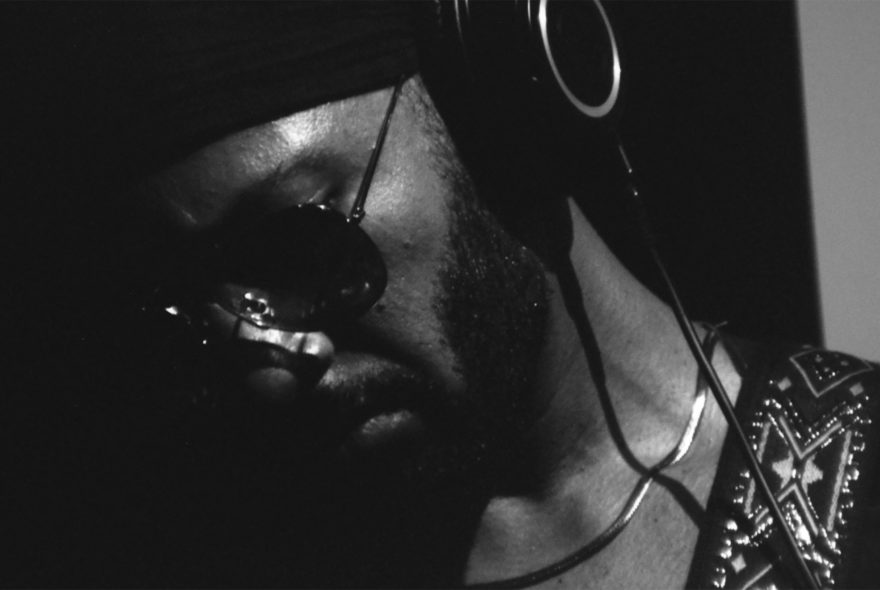Playwright Jeremy O. Harris made history this year when his provocative Slave Play garnered the most Tony nominations ever for a single work (12, including Best Play). He began writing Slave Play while attending the Yale School of Drama, where he earned an MFA in playwriting, but his inspiration was intrinsic, stemming from his experiences growing up in Martinsville, Virginia.
Unpacking the harsh realities of sexual and racial violence and trauma, Slave Play stirred controversy with its brash and graphic nature. At times generating a sense of discomfort for the audience, the work forces theatergoers to face ugly truths, reckon with the past, acknowledge its impact on the present, and assess their own place within the trajectory. The same is true for Harris’ film, Zola, the adaptation of Aziah “Zola” Wells’ viral Twitter chronicle that took the internet by storm in 2015, resulting in the high-profile Rolling Stone magazine feature, “Zola Tells All: The Real Story Behind the Greatest Stripper Saga Ever Tweeted.” For his foray into film, Harris teamed up with writer/director Janicza Bravo to co-write an honest, raw look at sex work in America while maintaining the singularity and humor of Wells’ voice. In conversation with C-VILLE Weekly, Harris reflects on his rise to success, and what it means to him to return to Virginia.
C-VILLE: You went to high school in Martinsville, VA. Can you talk about how your experience growing up in the South, particularly in Virginia, impacts your current work?
JH: It’s impacted every facet. The tradition of Southern storytelling is very rich. The thing that’s special about the South is its sort of wild, complex history with both the slave trade—Virginia being the hub of the domestic slave trade in America once the Transatlantic slave trade was ended—and also the fact that Virginia specifically was sort of like the hub between the North and the South…but the Confederacy capital is in Richmond, right?
There’s a lot of complexities that come from this area that teaches one, without even knowing it, the value of what you want, and how you tell your story, and how you know your history. It takes a lot of nuance to explain to someone, as a Black person, that one of your best friends was the owner of the largest plantation in southwestern Virginia. What does that mean that we played there together? Just the fact that we played doesn’t absolve that person of anything.
These are the kind of questions that are at the core of Faulkner stories, right? These are at the core of so many of the bedrocks of American literature and literary traditions. Those things have very much been like a fuel to the fire of the stories I’ve told.
For a lot of people in the North, this year was one of the first times they’ve actually reckoned with race—even though Trayvon Martin happened [almost 10] years ago. There have been a litany of other things that have happened in our lifetime, for even someone as young as I am, that they could have pointed to as a moment of racial reckoning. But it literally took George Floyd and a pandemic for them to recognize it in the North.
And for people in the South, that sort of delayed recognition…I’ve always felt like racism, the questions around white supremacy, questions about privilege, even if the language wasn’t there, the ideas were very much there because they were ingrained in the architecture of where we were.
We’ve been dealing with our own racial reckoning here in Virginia. In Charlottesville, everything came to the forefront in the wake of the white supremacist rally in 2017—and most recently in Richmond with the removal of the Robert E. Lee statue on Monument Avenue. What does it mean to you to screen one of your works here, given the sociopolitical context?
I think it’s exciting; it’s a sort of a homecoming. I feel like myself, and a lot of people from Virginia, specifically, who feel othered—whether it’s because they’re Black, whether it’s because they’re gay, whether it’s because they’re a woman with too much ambition—they end up going to some faraway city and not coming back, right? And being like, this is a safer place for me to exist and explore and become the human being that I want to be.
I’ve done that and it’s been phenomenal for me, but it’s been tinged with some sadness because I would prefer to be able to grow with people that I grew up with; I would have preferred to have shared the lessons I was learning with everyone around me, and not feel as though I had abandoned my community and taken away a resource that you know, Virginia helped foster.
I was watered and planted in Virginia, and then I was uprooted, and went somewhere else and became a grand, surprisingly large flower, right, that beared fruit. And that fruit is being beared and shared with people in New York and people in L.A. So it’s really exciting to have this step of me being brought back and welcomed back in some small way to a community I left because I didn’t know if I would ever feel welcome there.
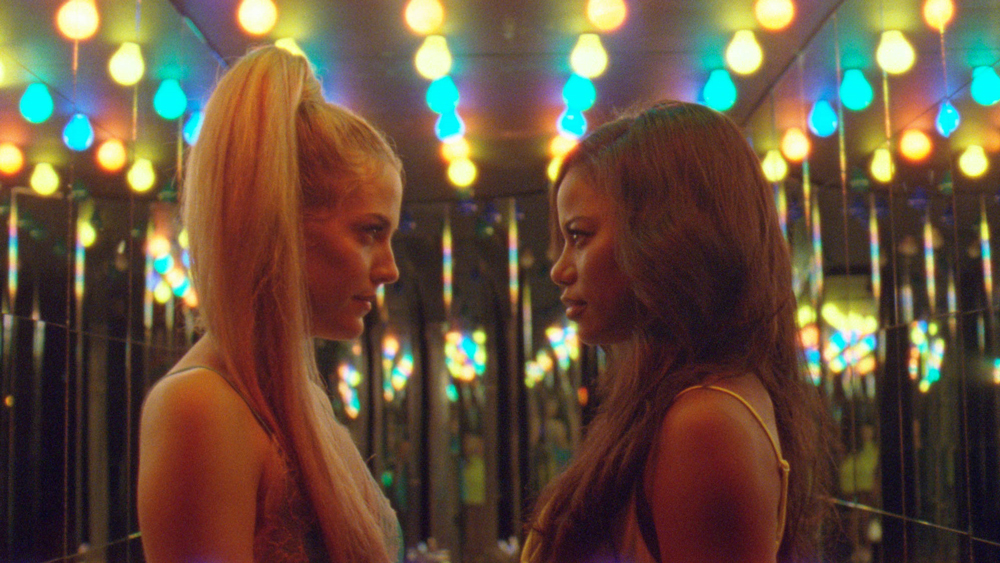
Do you feel a responsibility to take the lessons you’ve learned and the success you’ve achieved and channel it back into your community in some way?
I think that’s a complicated thing. There are moments where I feel like I owe everything to everyone down there and then moments where I’m like “I owe them nothing.” Oh, do I owe the cousin that called me the F-word, do I owe the students that called me the F-word anything? No.
There’s that question of, is it up to the person who’s been historically disenfranchised or othered to do the work?
That’s what gives me pause about coming back. But on the flip side, I think of the fact that there are people there who opened their homes to me, who shared things with me, and taught me things that I would have never known. And there’s also some other little boy or other little girl who feels a lot like I felt there, who probably feels alone.
I also do think that it’s very easy to abandon communities that you think haven’t evolved fast enough without trying to help them evolve. And again, that’s a lot of labor. But a part of me is like, it’s easier to evolve when you see it right in front of you; it’s harder when you can’t see it at all.
Maybe I do owe it to my community to be this out, proud, Black, successful gay man in Virginia, who can be a model for people who maybe have never even seen a gay person that’s out. I mean, they’ve definitely seen a gay person, they just maybe haven’t seen one who feels comfortable telling the world who they are. And me existing there might be something that could change that, right? Me existing there as someone who is very excited and proud to have co-written a movie directed by a Black woman…might make people have a different relationship to gender, and who gets what jobs in that area, because now they might not feel as though there’s some wild imposition of masculinity the minute that a woman is involved in any sort of project that a man is involved in.
That brings me to Zola, which you co-wrote with director Janicza Bravo. What first attracted you to this project?
I was actively on Twitter as it was happening. [A’Ziah “Zola” King] had written maybe like 15 of the 145 tweets and I was at tweet 15 thinking, “This is the funniest line ever—who is this?” And I think that I was captivated immediately then by the ferocity of her voice and the newness of her voice in the sense that her voice felt similar to the ways in which I process the world.
Can you talk about your writing approach to the film? It’s a unique undertaking in that you’re adapting tweets. Many lines in the movie were lifted directly from Zola’s tweets—but how did you maintain her voice?
Isn’t it so funny [the opening line of the film]: “Y’all wanna hear a story about why me and this bitch here fell out?” Isn’t it such a Southern turn of phrase? That line just feels like home to me.
And it’s immediately captivating. It feels like sitting around the table talking to your friends.
Exactly. It does feel exhilarating. The thing that made it very easy for me was that she told the story with such conviction, with such an innate and natural understanding of the rhythm of the storytelling that I didn’t have to do anything. It was basically like plug and play. So every beat that’s in the movie is from her actual Twitter thread, right. And so we just went through it and wrote them all down as the outline. And we filled in the beats in between the tweets.
Anything that could have happened between a pair of tweets—like there’s a tweet where they got in the car, and the next tweet, they’re in Florida—we filled out what happened on the ride to Florida, then. And that became a really important process. And then outside of that, we went through her actual history—some of the things she had told [David Kushner], the man who wrote the [Rolling Stone] article about her and used those things to add further flavors to the story.
This movie is categorized as a comedy, but it takes on a very serious subject. And I felt like it challenged me. There were certain scenes that I thought were funny, and there were other scenes that made me uncomfortable. Then there were scenes that I appreciated, but I felt like I wasn’t the intended audience. As a viewer, I felt very self-aware and my interpretation was that that was intentional. Was it?
I believe very strongly that an audience who is aware of itself, aware of its presence, are able to take on bigger ideas, even inside of a comedy, than they would if they aren’t aware of themselves. You do enough to remind people that what they’re watching is a movie that has an idea and the ideas are X, Y, and Z, so that they’ll notice things like the Confederate flag or the fact that a Black woman who doesn’t look anything like Whoopi Goldberg is being called Whoopi Goldberg. And even if they don’t understand what that means in the moment, they’ll think about it for longer because the movie has done a lot to destabilize the relationship to what they’re seeing.
Zola
October 31
Culbreth Theater
